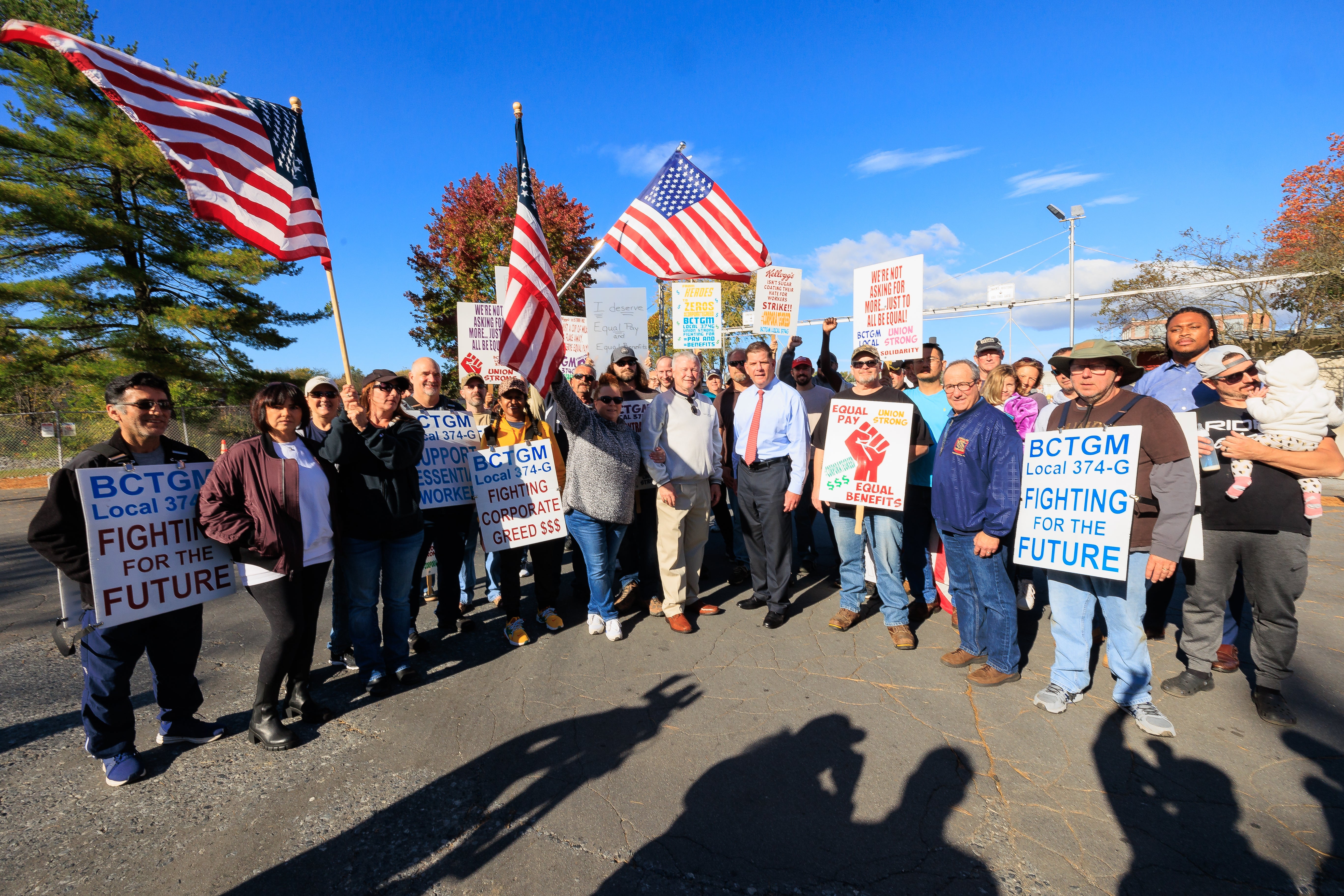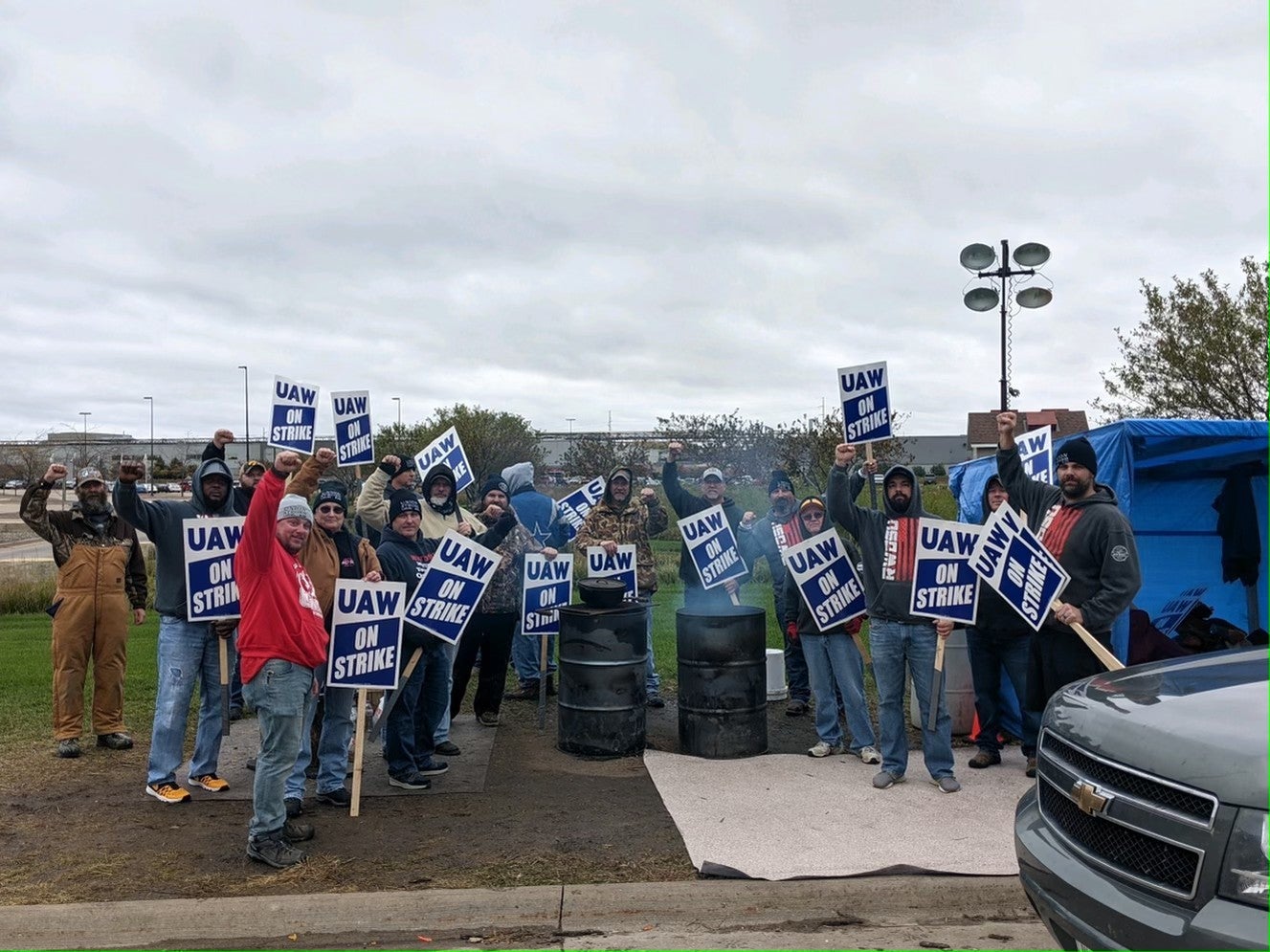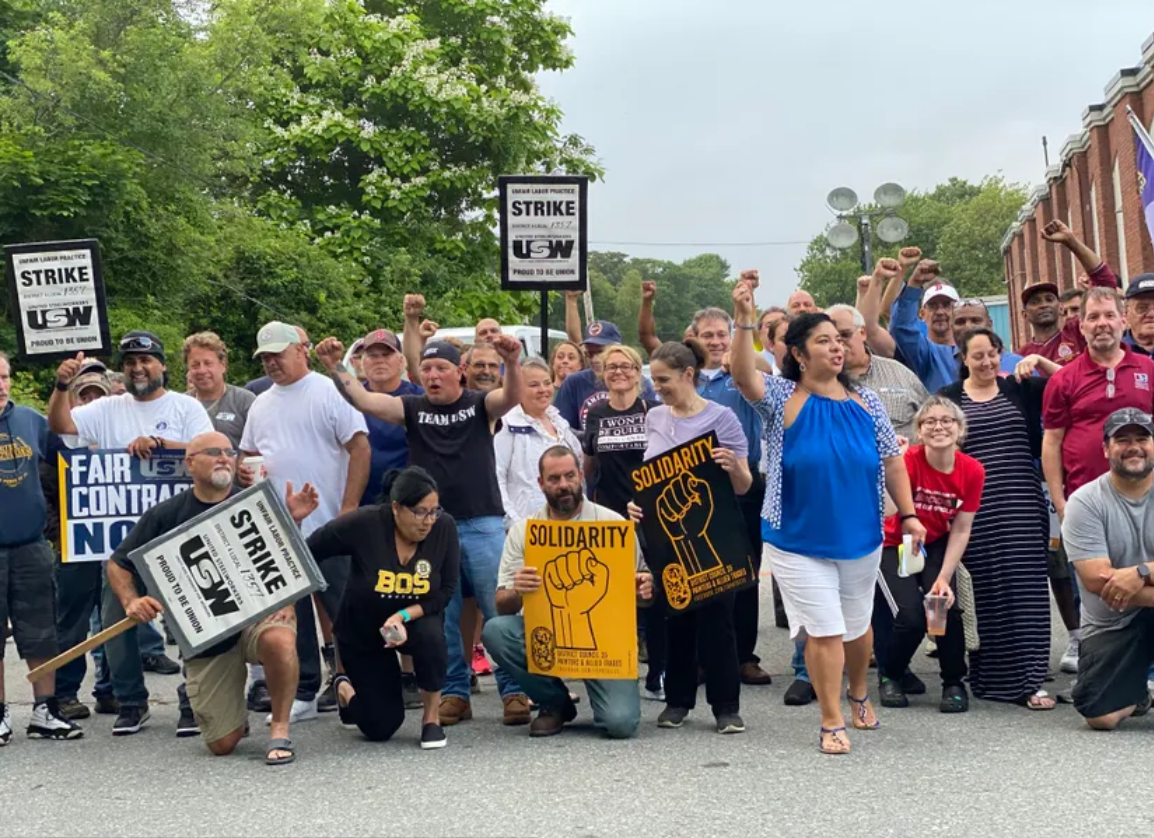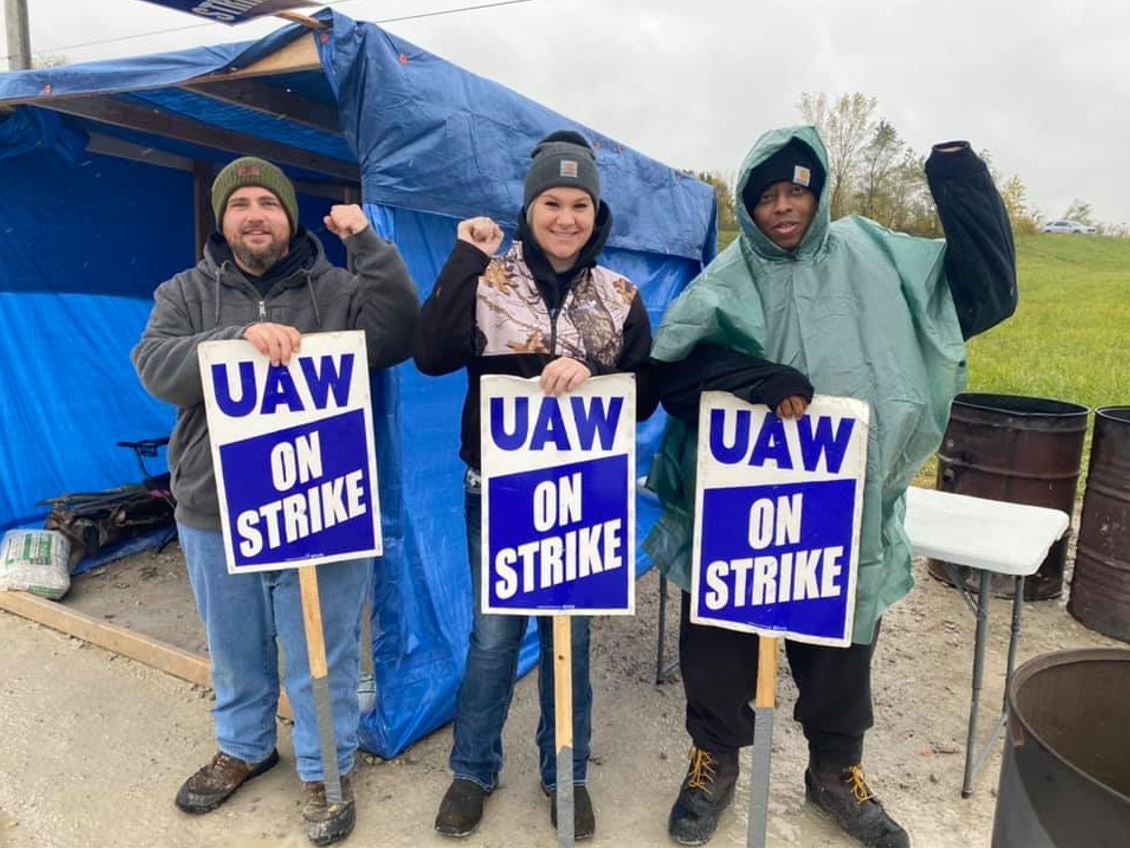Workers Win with Solidarity

Photo Credit: Department of Labor
The surge of workers organizing and demanding better pay, fair treatment, and a voice on the job has risen to levels not seen in decades. Across industries, hundreds of thousands of workers in North America organized for union representation, withheld their work skills when unfairly treated, and joined picket lines to demand better wages, retirement benefits, job safety, and working conditions.
Workers “are the folks that really made the sacrifices [during the pandemic] and the whole time, they were told they were essential,” said AFL-CIO President Liz Shuler. “Then they go to the bargaining table and they’re basically disposable.”
“The companies continued to profit through the pandemic and then say, ‘Thanks, but we’re not going to compensate you, we’re not going to protect you, we’re not going to value and reward you for making those sacrifices,” Shuler continued. “[Workers] are absolutely fed up.”

In 2021, strikes included construction workers demanding fair pay, nurses and hospital staff across the country, telecommunication workers for Frontier Communications, warehouse workers at Hunts Point Produce in The Bronx, auto mechanics in Chicago, distillery workers in Kentucky, janitors at Denver airport, steelworkers at Allegheny Technologies Inc. (ATI), and school bus drivers in Annapolis. The threat of massive walkouts led to strong contracts for 60,000 International Alliance of Theatrical Stage Employees (IATSE) members and 32,000 Kaiser Permanente workers.

Photo Credit: Anastasia E. Lennon
“Last year was inspiring for the entire labor movement as we saw our union brothers and sisters come out and stand together for better workplace conditions, pay, and benefits,” said BAC International President Tim Driscoll. “Strikes are a last resort for union workers, but a powerful one when needed to remind businesses that workers are the engine that drives company profits.”
Standing Strong Against Corporate Greed
During the pandemic, many companies made record-breaking profits, but when it came time to negotiate new contracts, some employers were unwilling to share the prosperity or listen to their employees’ demands for better working conditions. Some companies also tried to use the moment to limit retirement and health care benefits for newly hired employees, further expanding their “two-tier” systems.
In October, approximately 10,000 workers at 14 Deere and Co. locations, represented by the United Auto Workers (UAW), went on strike for the first time in 35 years. When negotiations started, the company proposed wage increases below inflation, and demanded deep pension cuts. This is all while Deere and Co. was enjoying massive profits.

“The company wanted to eliminate pensions altogether for new people, and we refused to sell people down the road like that,” said Josh Saunders, a John Deere Striker. “It’s about sticking together now and for the people who come after us.”
Throughout the strike John Deere workers stood strong and rejected multiple offers until the company relented. A month into the strike the workers ratified an agreement that had 20 percent pay increase over the life of the six-year contract, cost of living adjustments, a signing bonus, no changes in healthcare and enhanced retirement options.
“UAW John Deere members did not just unite themselves; they united the nation in a struggle for fairness in the workplace,” said UAW President Ray Curry.
‘We Stood up for What we Believed was Right’
Another industry that made massive profits at the expense of their workers is American food manufacturers. Members of the Bakery, Confectionery, Tobacco Workers and Grain Millers International Union (BGTCM) who work at Nabisco, Frito-Lay, and Kellogg all went on strike in 2021. The Kellogg strike captured the attention of the nation when President Biden stepped in and condemned the company for moving to hire replacement workers.
A primary demand of the strikers was to have a guaranteed process for workers to advance from lower-paid “transitional” workers into traditional workers with higher pay and benefits. The company originally demanded a third, lower, status tier for new hires, who would never see the higher wages, benefits and middle-class lifestyle that had traditionally been the hallmark of BGTCM workers at Kellogg.
The 1,400 workers at Kellogg plants in Omaha, Neb.; Lancaster, Pa; Battle Creek, Mich.; and Memphis, Tenn. started their strike on October 5, 2021, and after 77 days on the picket line voted to ratify an agreement on December 20. The final agreement included a process for all transitional employees to “graduate” to the traditional tier and included a promise to not close a plant through October 2026.
“From picket line to picket line, Kellogg’s union members stood strong and undeterred in this fight, and inspired workers across the globe,” said BCTGM International President Anthony Shelton. “The BCTGM is grateful, as well, for the outpouring of fraternal support we received from across the labor movement… Solidarity was critical to this great workers’ victory.”
The Tide is Turning
Already in 2022, Starbucks workers are starting to organize, Amazon workers continue to come together — with another vote scheduled for a Staten Island warehouse and a new vote scheduled in Bessemer, Ala.
In Brookwood, Ala., 1,100 United Mine Workers of America (UMWA) members continue to stand strong against Warrior Met Coal, a company run by Wall Street private equity firms. These miners agreed to concessions in 2016 on the condition that they would receive better wages and benefits when the company returned to profitability — a promise that the company is now breaking. BAC has supported these strikers with financial assistance and boots on the ground. As this issue goes to press, the strike is entering its 11th month.
“This is a pivotal time for labor” said President Driscoll. “Workers across all industries are coming to realize the essential role they occupy in our economy and the power that comes from banding together. Labor unions are how organized workers seek fair treatment and pay, and BAC is committed to being that voice for the unrepresented craftworkers in our trades.”
UMWA members and Warrior Met Coal strikers with supporters at rally in New York City.
Photo Credit: UMWA
